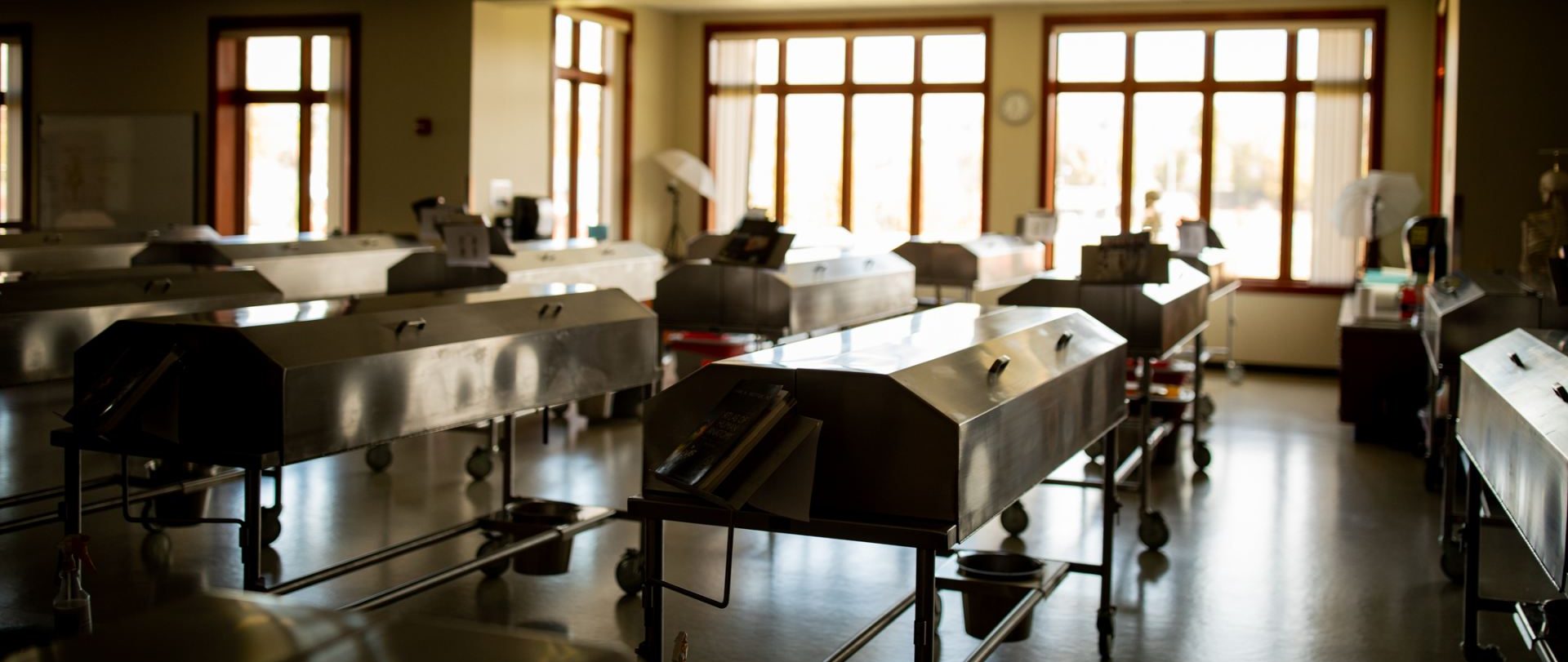By Ron Walser, DPT, Chair of Anatomy
Several years ago, I bought my current home in Yakima. During the process, I was able to inspect the home to my satisfaction. Besides observing the roof, the various systems within the home, and other structures, I spent a considerable amount of time assessing the foundation of the home. My previous experiences living in homes with unstable foundations cued me to pay strict attention to the foundations of the homes in which I live.
A strong foundation is imperative for success, especially in the workplace. Sometimes remodeling occurs above the foundation, but a strong foundation provides peace of mind and confidence in our actions during times of change. The anatomy department has recently undergone a bit of a remodel due to the retirement of two esteemed faculty members, who are now Faculty Emeriti; and, because of the contributions from these two individuals to the foundation of the anatomy program, their impact on PNWU will remain, despite their absence.
Dr. Robert Sorrells and Dr. Diana Rhodes retire from their positions as Professors of Anatomy at the end of this 2021-22 academic year, and we are indebted to them for the strength of the anatomy program foundation that was built from their sustained leadership, dedication, and care. Below is a brief summary of their distinguished careers – and I do mean a brief summary; The Grapevine is not capable of housing a report that would completely sum up their careers, including their impact on individuals and anatomy education.
_______
Dr. Robert Sorrells received a PhD from the University of Georgia (UGA). His dissertation involved neural network representations of knowledge and learning, including programs that were used by the military to assess cadet readiness. While in graduate school, he found his love of statistics and taught undergraduate statistics and research methods courses. After graduation, he began working for the Artificial Intelligence Group of UGA as a cognitive learning specialist. There, the goal was to use computational models to create multiuser domains (MUDS) for educational purposes; basically, gamifying science education.
Dr. Sorrells moved to Washington in 2000 and took a job at Central Washington University (CWU) where he wrote grants for the McNair Scholars Program. While at CWU, he taught courses in Cognitive Psychology, Educational Psychology, and the History of Psychology. In 2007, a former Dean of PNWU called and asked if Dr. Sorrells would help set up the neuroscience curriculum for a new medical school, and work with Dr. Lex Towns, the founding Chair of Anatomy at PNWU, to set up the anatomy curriculum and lab structure.
At PNWU, Dr. Sorrells served on the very first Faculty Executive Committee of the Faculty Council and was recognized for that service with a plaque that still hangs in his office, along with various awards from the PNWU Student Government Association (SGA). He has served on nearly every committee and workgroup at PNWU, and he played a large role in the Roots to Wings program for the past several years. Additionally, he developed the Chautauqua Speaker Series and the Norm Hyatt What Matters in the End Conference, and he continued to use his love of statistics to help new faculty members and several students in accomplishing their research goals.
_______
Dr. Diana Rhodes received her DVM and PhD degrees from Purdue University. She began her career in teaching osteopathic medical students at the Kirksville College of Osteopathic Medicine, where she taught Gross Anatomy for the 17 years she was there. Dr. Rhodes also established an independent, NIH funded research program where she investigated the biochemical and immunologic properties of Tamm-Horsfall protein, the most abundant protein in normal human urine.
In 2010, Dr. Diana Rhodes and her husband, Dr. James Rhodes, were recruited to PNWU by Dr. Towns. The Rhodes’ task was to assist in the teaching of the anatomical disciplines at PNWU, as well as to establish the first bench research laboratory at PNWU.
Dr. Diana Rhodes became the Chair of the Department of Anatomy in 2013. She continued to be a course director and teach many lectures in the Gross Anatomy courses, as well as teach some embryology and histology within the pre-clinical curriculum. Dr. Rhodes utilized the newly established research lab to continue her research on Tamm-Horsfall protein, leading to publication of this work. She was able to include numerous PNWU students in these studies, resulting in student presentations of this work at national meetings. Additionally, Dr. Rhodes led students in various educational, clinical, and cadaveric research studies through the years. As Chair of Anatomy, she led a department composed of dedicated faculty and academic scholars, who were recognized as the “Outstanding Educational Department” by the PNWU SGA several years in a row.
_______
Dr. Sorrells and Dr. Diana Rhodes, along with Dr. Towns and Dr. James Rhodes, collaboratively laid the footings and formed the foundation of the anatomy program at PNWU: a program that is considered a pillar of strength within the PNWU Community.
Dr. Sorrells and Dr. Rhodes, the students thank you; your colleagues thank you; and your fellow anatomists thank you for your leadership, for your careful consideration of student and faculty needs, and for everything you accomplished at this university.
We will work to maintain the foundational strength of the anatomy program at PNWU. We wish you both the happiest of retirements, full of adventure. You deserve it!
